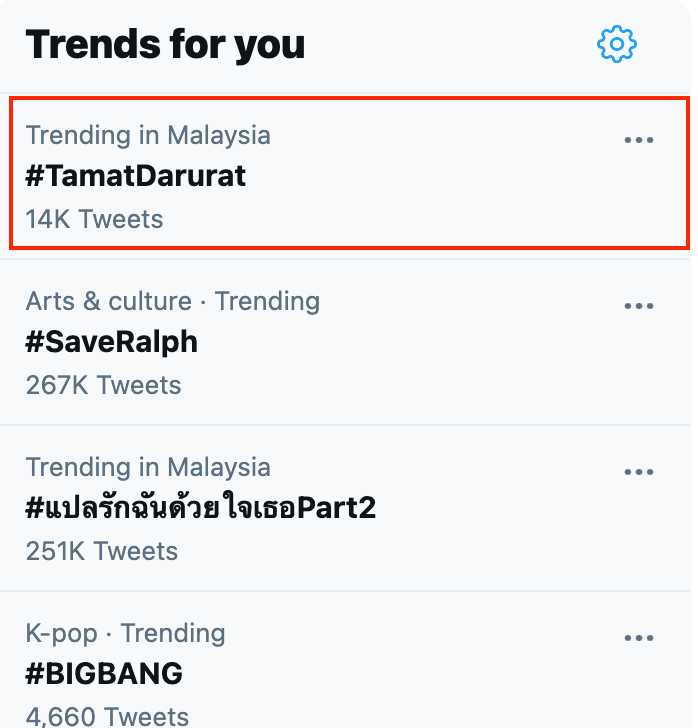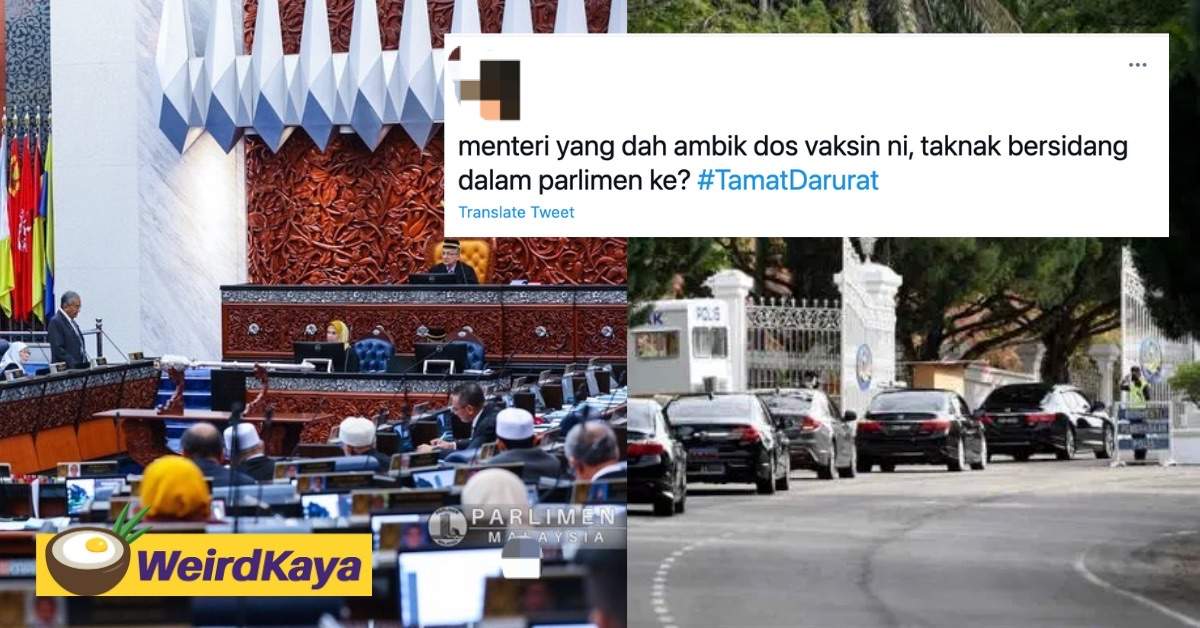KUALA LUMPUR – With the recent spike of COVID-19 cases in Malaysia, many opposition MPs and netizens expressed their concerns over the country’s preparedness in handling the crisis with the hashtag #TamatDarurat.
#TamatDarurat was first initiated by Shah Alam MP Khalid Samad on March 12 as a petition to the King to withdraw the declaration of an emergency. It quickly gained widespread support from the public and politicians, including Seputeh MP Teresa Kok, Lembah Pantai MP Fadmi Fadzil and Petaling Jaya MP Maria Chin Abdullah.

According to the #TamatDarurat website, it has now received more than 35,000 signatures.
Usah berdalih lagi
— #TamatDarurat (@TamatDarurat21) April 18, 2021
Jangan cabul hak kami
Nekad sudah hasrat di hati
Kali ini mesti menjadi
Ampun Tuanku.
Patik minta #TamatDarurat.#BukaParlimen #TamatDarurat
Tandatangan petisyen TamatDarurat sekarang di https://t.co/LErVzZPs4i pic.twitter.com/FEWZ7V9sbK
The call to end the state of emergency was first trending on Twitter back in March, but it has made a strong comeback now. Why? Here are a few reasons:

COVID-19 cases are still increasing
When the government declared a state of emergency in January, its purpose was to control the pandemic. However, recent statistics show that it is going in the wrong direction even after more than three months of darurat in place.
What's the point of having state of emergency (i.e. #darurat) when the number of cases are so damn freaking high? Despite all the strict SOPs and expensive fines imposed to civilians, evidently #KerajaanGagal Enough already! Its high time you ministers go ahead and #TamatDarurat pic.twitter.com/NIbuZOHy1w
— ?ArvDwalz? (@ArvInTheSky) April 19, 2021
Some also said that it had lost its relevance.
Usah berdalih lagi
— Amiruddin Hamzah (@YbTokmet) April 18, 2021
Jangan cabul hak kami
Nekad sudah hasrat di hati
Kali ini mesti menjadi
Ampun Tuanku.
Patik minta #TamatDarurat.#BukaParlimen #TamatDarurat
Tandatangan petisyen TamatDarurat sekarang di https://t.co/Dg6lLnZVAv pic.twitter.com/UMSxDJy9WS
Accusations of double standards
Since the closure of Parliament, there has been an explosion of news accusing politicians of violating the SOPs (e.g. travelling interstate, not wearing face masks) but faced little to no repercussions. In contrast, struggling citizens were slapped with crushing compounds amounting up to RM10,000.
The rakyat is suffering, when will our representatives going to start listening? #TamatDarurat
— Kemankuki (@Kemankuki) April 19, 2021
“Reopen Parliament now!”
Members of Parliament were among the first to receive two doses of the vaccine, making their risk of infection significantly lower than that of the general public.
Ironically, Parliament remains closed while schools, restaurants, bars, and beauty salons are allowed to resume operations, raising questions over the real intentions of Parliament’s inactivity.
After all the scandal, the best thing Agong can do is #TamatDarurat . ITS THE LEAST HE COULD DO NOW. We, unvaccinated rakyats still go to work, school, practicals but vaccinated 'ministers' skip parliament but gets full salary (our tax money) ?
— Khomyuk ??? (@blogger_holic) April 19, 2021
Mounting crisis of confidence
Evidence from previous emergency orders showed that investor and consumer confidence dropped sharply, The Malaysian Insight (TMI) reported. Malaysia has also seen a massive exodus of multinational companies (MNCs) such as Citibank and IBM from the local market and bringing their business elsewhere.
Enough is enough. The only thing this Darurat has achieved is to scare away existing investors and keep away new ones. This Darurat must be ended before we and the country go bankrupt.#TamatDarurat
— Tajuddin Kamil (@TajuddinKamil) April 19, 2021
So, what do you think? Comment below and let us know!
Disclaimer: The views expressed in this article are the author’s own and is a compilation of public opinions on the subject matter. They do not purport to reflect the opinions or views of WeirdKaya.
Sources: Twitter, Cover image via Prime Minister’s Office of Malaysia and Astro Awani
Editor: Raymond Chen
Proofreader: Sarah Yeoh



